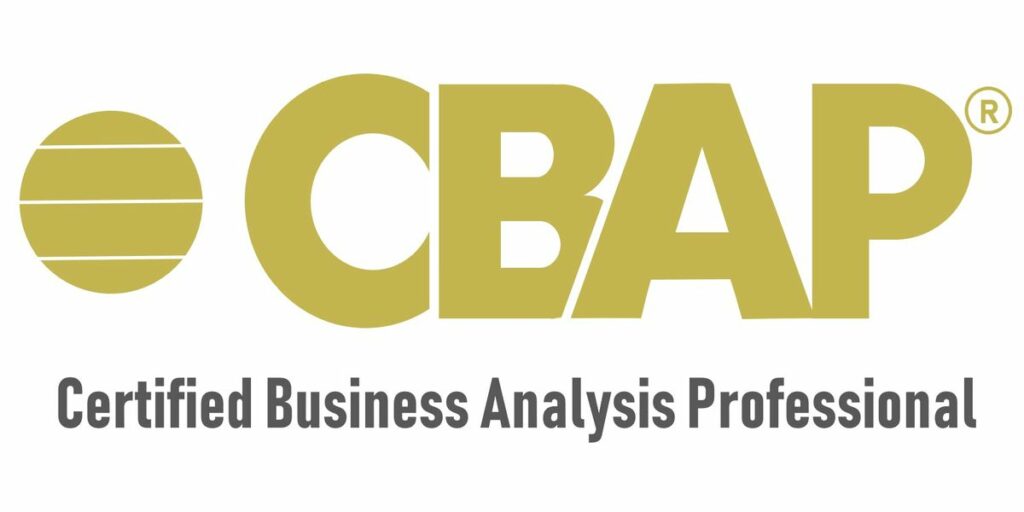Business Analysis Certification: Empowering Minority Professionals in the UK Job Market

Business Analysis Certification: Empowering Minority Professionals in the UK Job Market
In today’s diverse and inclusive job market, minority professionals in the UK are seeking pathways to empower their careers. One such path that offers tremendous opportunities is that of a business analyst.
With the growing demand for skilled professionals who can bridge the gap between business and technology, a business analysis certification can be a game-changer.
Let’s explore how business analysis certification can empower minority professionals in the UK job market and discover how Digital Business School (DBS), a leading training institution, offers a comprehensive business analyst course, including a three-month internship, to help minority professionals unlock their full potential.
In today’s fast-paced and technology-driven world, the need for business analysts has never been greater. Organizations across industries are recognizing the value of professionals who can analyse business processes, identify areas for improvement, and translate requirements into actionable solutions.
Business analysts play a crucial role in helping businesses make informed decisions, improve efficiency, and drive growth. Their ability to bridge the gap between business and technology is highly sought after in the job market.
For minority professionals in the UK, pursuing a career as a business analyst can provide an exciting and fulfilling journey. The role offers abundant growth opportunities, both professionally and financially.
By obtaining a business analysis certification, minority professionals can enhance their knowledge, validate their skills, and gain a competitive edge in the job market.
This certification serves as a testament to their expertise, commitment to professional development, and ability to deliver value to organizations.
Digital Business School: Empowering Minority Professionals

Digital Business School (DBS) is dedicated to empowering minority professionals in the UK by providing comprehensive business analyst training.
At DBS, we offer a specialized business analyst course designed to equip students with the skills and knowledge required to excel in this field.
Our program covers the fundamental concepts of business analysis, including requirements gathering, data analysis, stakeholder management, and business process modelling.
We believe in a hands-on approach to learning, which is why we provide practical training with industry-standard tools and techniques.
Our experienced instructors, who are seasoned business analysts themselves, bring real-world expertise into the classroom, offering practical insights and guidance to our students.
This practical exposure allows our students to develop a deep understanding of the business analysis process and prepares them to tackle real-world challenges with confidence.
To further enhance the practical experience, DBS offers a three-month internship opportunity as part of the business analyst course.
This internship allows minority professionals to apply their newly acquired skills in a real work environment, gaining valuable industry exposure and building a professional network.
By working on actual projects and collaborating with experienced professionals, our students gain the confidence and competence needed to thrive in their careers.
The internship also serves as a bridge to potential employment opportunities, as companies often hire interns who demonstrate exceptional skills and dedication.
DBS understands the unique challenges faced by minority professionals in the UK job market.
We are committed to providing a supportive and inclusive learning environment where students can thrive and reach their full potential. Our training not only focuses on technical skills but also emphasizes the development of essential soft skills.
Effective communication, critical thinking, problem-solving, and leadership abilities are crucial for success as a business analyst.
By nurturing a well-rounded skill set, DBS ensures that our graduates are not only technically proficient but also capable of making a positive and lasting impact in their chosen careers.
Other BCS Certifications and Career Paths

Upon completing the business analyst course and internship, DBS continues to support our graduates in their professional growth.
While the Business Analysis Certification provides a strong foundation, there are other certifications offered by the British Computer Society (BCS) that students can pursue to further enhance their knowledge and expertise in specific areas of business analysis.
Some of the other BCS certifications include:

1. BCS International Diploma in Business Analysis:
This advanced-level certification builds upon the Business Analysis Certification and provides a deeper understanding of business analysis principles, strategic analysis, business architecture, and business change management.
Holding this diploma sets professionals apart and opens doors to senior-level positions in business analysis and related fields.
2. BCS Certificate in Requirements Engineering:
This certification focuses specifically on requirements engineering, equipping professionals with advanced techniques and methodologies for gathering, documenting, and managing requirements.
Requirements engineers play a critical role in ensuring that projects meet stakeholders’ needs and expectations.
3. BCS Certificate in Business Architecture:
Business architecture is a strategic discipline that aligns business goals, processes, and operations.
This certification provides professionals with the skills and knowledge to analyze an organization’s structure, identify gaps, and propose improvements to optimize performance.
4. BCS Certificate in Agile Business Analysis:
Agile methodologies have become increasingly popular in the IT industry, and this certification focuses on applying business analysis practices within agile environments.
It covers agile principles, user story development, backlog management, and effective collaboration with agile teams.
By obtaining these additional certifications, minority professionals can specialize in specific areas of business analysis and enhance their career prospects.
They can pursue various career paths such as Business Analyst, Systems Analyst, Business Architect, Agile Business Analyst, Requirements Analyst, Process Analyst, or Project Manager.
These roles can be found in a wide range of industries, including IT, finance, healthcare, government, and consulting.
If you’re looking to transition into the field of business analysis, there are several non-IT-related careers that provide a strong foundation and make for a relatively seamless switch.
Professionals with backgrounds in customer service, sales, marketing, finance, and operations often possess transferable skills that align well with the role of a business analyst.
These individuals already have experience in interacting with customers, analyzing market trends, managing budgets, and problem-solving.
By leveraging their adaptable skills and building upon them through a business analysis course, they can make a smooth transition into a career as a business analyst.
The combination of their domain expertise and newly acquired business analysis skills positions them as valuable assets in organizations across industries.
Professionals with a background in customer service bring excellent communication and interpersonal skills, which are essential for gathering requirements and collaborating with stakeholders.
Their ability to empathize with customers and understand their needs can be applied to identifying business objectives and translating them into actionable solutions.
Sales professionals possess strong persuasive and negotiation skills, which can be valuable in eliciting requirements and influencing stakeholders to drive business outcomes.
Their experience in analyzing market trends and identifying customer preferences can contribute to effective business analysis and strategy development.
Those with a finance background bring a deep understanding of financial analysis and budget management, which can be applied to conducting cost-benefit analyses and assessing the financial feasibility of proposed solutions.
Operations professionals excel in managing processes and optimizing efficiency. Their experience in streamlining workflows, identifying bottlenecks, and implementing improvements can be directly translated into business analysis activities such as process modeling and identifying areas for process optimization.
By leveraging their adaptable skills and combining them with the knowledge and techniques gained through a business analysis course, professionals from these non-IT backgrounds can successfully transition into the role of a business analyst.
Their diverse perspectives and expertise can bring valuable insights to organizations, enabling them to make informed decisions and drive successful business outcomes.
While technical skills are essential for a business analyst, attitude and soft skills play a vital role in ensuring success in the field.
A potential new business analyst should possess a curious and analytical mindset, always seeking to understand the underlying business needs and challenges.
They should be excellent communicators, capable of effectively conveying complex ideas to diverse stakeholders and facilitating productive discussions.
Strong problem-solving abilities, critical thinking, and attention to detail are also crucial traits for a business analyst. Additionally, adaptability, flexibility, and the ability to work collaboratively in cross-functional teams are highly valued.
A successful business analyst is proactive, proactive, and continuously seeks opportunities for professional development and growth.
By combining technical expertise with these essential skills and attitudes, individuals can thrive as business analysts and make a meaningful impact on business outcomes.
If you’re considering a career in the IT industry but have an interest in roles similar to business analysis, there are several paths to explore.
These related careers offer diverse opportunities for growth and are well-suited for both new entrants and professionals looking to switch careers within the IT industry.
Let’s delve deeper into these roles and the certifications that can enhance your prospects in each field.
1. Systems Analysis:
Systems analysts focus on analyzing and improving computer systems within an organization.
They bridge the gap between business requirements and technical solutions by understanding user needs, conducting feasibility studies, and proposing system enhancements.
To excel in this role, professionals can pursue certifications such as the Certified Systems Analyst Professional (CSAP) offered by the International Institute of Business Analysis (IIBA).
This certification validates expertise in systems analysis techniques, requirements management, and system design.
2. Data Analysis:
Data analysts specialize in collecting, analyzing, and interpreting large datasets to support decision-making.
They utilize statistical techniques and data visualization tools to identify trends, patterns, and insights that drive business strategies.
Certifications such as the Certified Data Management Professional (CDMP) offered by the Data Management Association (DAMA) can enhance credibility in the field of data analysis.
These certifications validate proficiency in data management concepts, data analysis techniques, and data governance practices.
3. Product Management:
Product managers oversee the development and lifecycle of a product. They work closely with stakeholders, including business analysts, to translate customer needs into product features, define the product roadmap, and ensure successful product launches.
While there are no specific certifications exclusively for product management, professionals can pursue certifications such as the Certified Product Manager (CPM) offered by the Association of International Product Marketing and Management (AIPMM).
These certifications cover topics such as product strategy, market analysis, and product lifecycle management.
4. Project Management:
Project managers are responsible for planning, organizing, and executing projects, ensuring they are completed on time and within budget.
They collaborate with stakeholders, manage resources, and mitigate risks to deliver successful outcomes.
The Project Management Professional (PMP) certification offered by the Project Management Institute (PMI) is highly regarded in the field of project management.
It demonstrates proficiency in project management principles, techniques, and best practices.
5. IT Consulting:
IT consultants provide expert advice and guidance to organizations on how to leverage technology to achieve their business goals.
They analyse business processes, identify opportunities for improvement, and recommend technology solutions that align with organizational objectives.
While certifications are not mandatory for IT consultants, obtaining certifications such as the Certified Management Consultant (CMC) offered by the Institute of Consulting (IC) can enhance credibility and demonstrate expertise in consulting methodologies and practices.
By pursuing certifications in these related fields, professionals can strengthen their knowledge, validate their skills, and enhance their career prospects.
These certifications provide a framework for acquiring industry-standard knowledge and demonstrate commitment to professional development.
Combined with a solid foundation in business analysis, professionals can expand their career opportunities and make significant contributions in their chosen field within the IT industry.
By exploring these alternative IT careers, individuals can find roles that align with their interests, strengths, and career aspirations, allowing them to contribute their skills and make a positive impact in the technology-driven business landscape.
In conclusion, a business analysis certification can be a transformative step for minority professionals in the UK job market. It empowers them with the skills, knowledge, and credibility needed to excel as business analysts.
Digital Business School (DBS) is committed to providing comprehensive training and support to minority professionals, including a three-month internship to bridge the gap between theory and practice.
Through our specialized courses and emphasis on practical skills, we enable our students to unlock their full potential and thrive in their careers as business analysts.
Take the first step towards a rewarding career today and embark on a journey of success with DBS’s Business Analysis Course.










